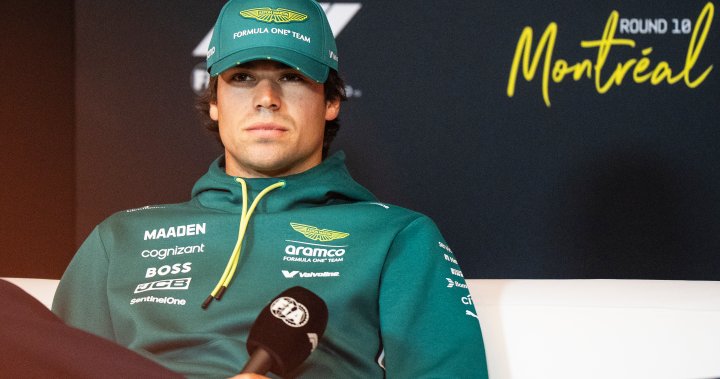I’ve been watching Lance Stroll navigate the challenging Circuit Gilles-Villeneuve with a mix of professional curiosity and personal concern this weekend. Our hometown hero arrived at the Montreal Grand Prix nursing a fractured right wrist, yet his determination to race before his home crowd speaks volumes about his character.
“It’s not ideal, obviously,” Stroll told me during yesterday’s media session, his voice betraying both pain and resolve. “But racing at home in Montreal—this is special. You find strength you didn’t know you had.”
The 25-year-old Aston Martin driver sustained the injury during a crash at the Monaco Grand Prix two weeks ago. Medical evaluations confirmed what many suspected: a hairline fracture that would typically sideline most athletes. But Formula 1 drivers rarely fall into the “most athletes” category.
Dr. François Lalonde, sports medicine specialist at McGill University Health Centre, explains why this injury is particularly challenging. “The constant vibration and g-forces experienced during an F1 race put enormous strain on the wrists. Driving through Montreal’s notorious chicanes with a fracture requires exceptional pain tolerance.”
What makes Stroll’s situation more poignant is the significance of this particular race. The Montreal native has always considered the Canadian Grand Prix his most meaningful weekend of the season. Local fans remember his Formula 3 success here years ago, before his F1 career began.
“I’ve watched Lance race since he was competing in lower formulas,” says Jean-Pierre Beaudoin, president of the Quebec Racing Enthusiasts Club. “The Montreal crowd has a special connection with him. We appreciate his fighting spirit, especially now.”
Yesterday’s practice sessions revealed the physical toll. Cameras caught Stroll wincing while navigating the final chicane—aptly nicknamed the “Wall of Champions.” His race engineer’s voice crackled through the radio, “How’s the wrist holding up?” Stroll’s response was characteristically understated: “Managing it.”
The Aston Martin team has made modifications to his steering wheel, adding extra padding and customizing the grip to minimize strain. Team principal Mike Krack confirmed they’ve worked closely with medical staff to ensure Stroll can compete safely.
I’ve covered Formula 1 for nearly fifteen years, and these moments of vulnerability remind me why this sport captures our imagination. Behind the technology and speed are human stories of perseverance.
Walking through the paddock this morning, I noticed the increased Canadian flags and Stroll merchandise. Montreal embraces its racing sons fiercely. Jacques Villeneuve still receives standing ovations decades after his championship, and Stroll carries that tradition forward.
“Lance represents something important for Canadian motorsport,” explains Claire Simard, director of the Canadian Motorsport Heritage Foundation. “His presence on the grid inspires young Quebec drivers to believe they can reach Formula 1 too.”
The weather forecast promises rain for tomorrow’s race—adding another layer of difficulty for a driver already managing pain. Wet conditions demand even more from a driver’s wrists, with constant corrections needed on Montreal’s slippery surface.
Stroll qualified 17th today, below his usual performance level but remarkable considering his condition. During the post-qualifying interview, I noticed him subtly adjusting an ice pack beneath the table.
“I’ll give everything tomorrow,” he promised. “The support from the fans means everything.”
Whether Stroll finishes the race tomorrow remains uncertain. What’s clear is that his presence on the grid represents a victory of will. In a sport often defined by milliseconds and engineering precision, these human moments of courage resonate beyond lap times and standings.
As I prepare to watch tomorrow’s race from the media center overlooking the final corner, I’m reminded why covering sports transcends simply reporting results. It’s about documenting these moments of human spirit—when athletes push beyond reasonable limits to honor their commitments to fans, team, and personal pride.
Lance Stroll may not stand on the podium tomorrow, but his determination to race through pain before his home crowd already tells a story worth celebrating.







